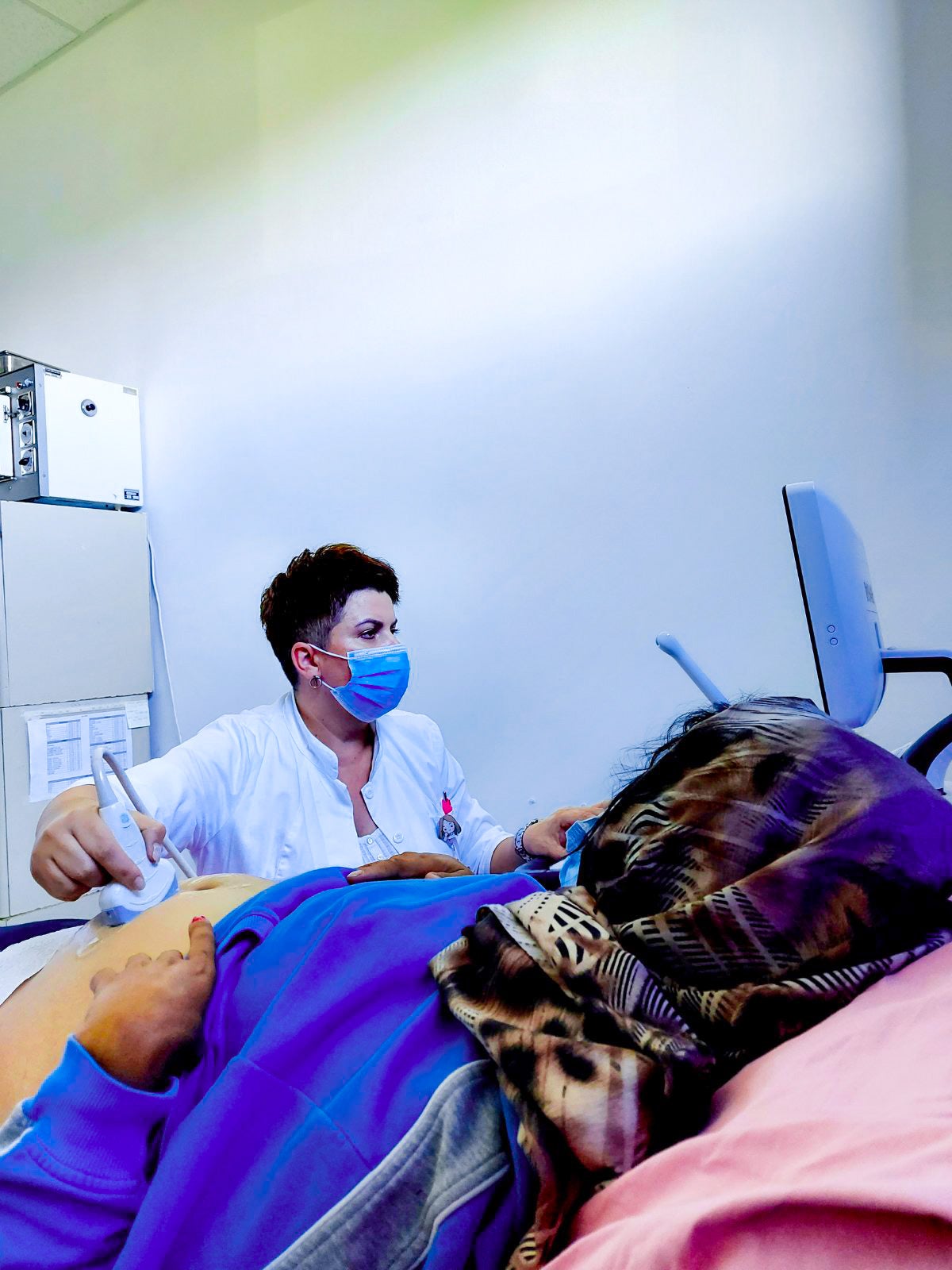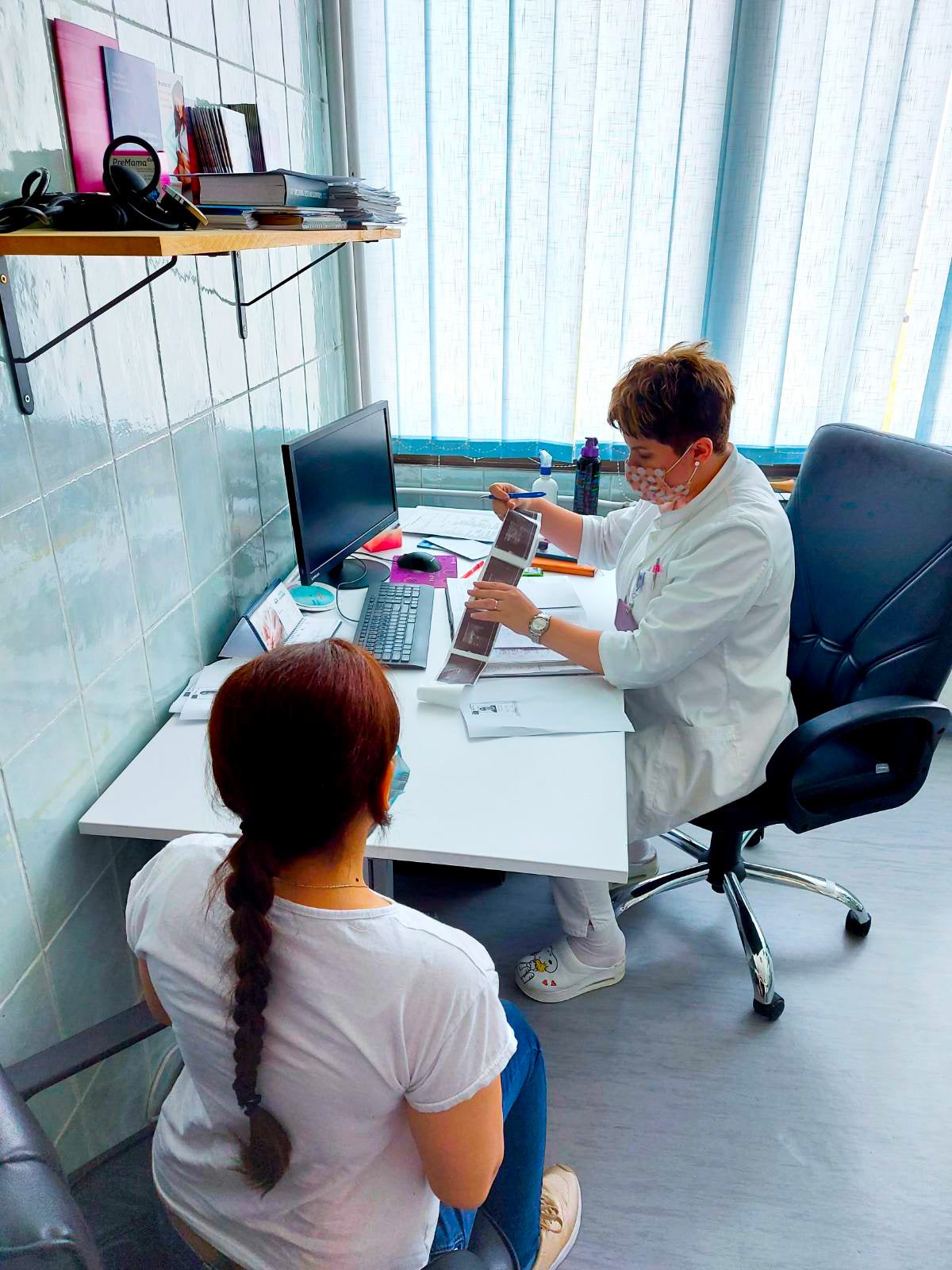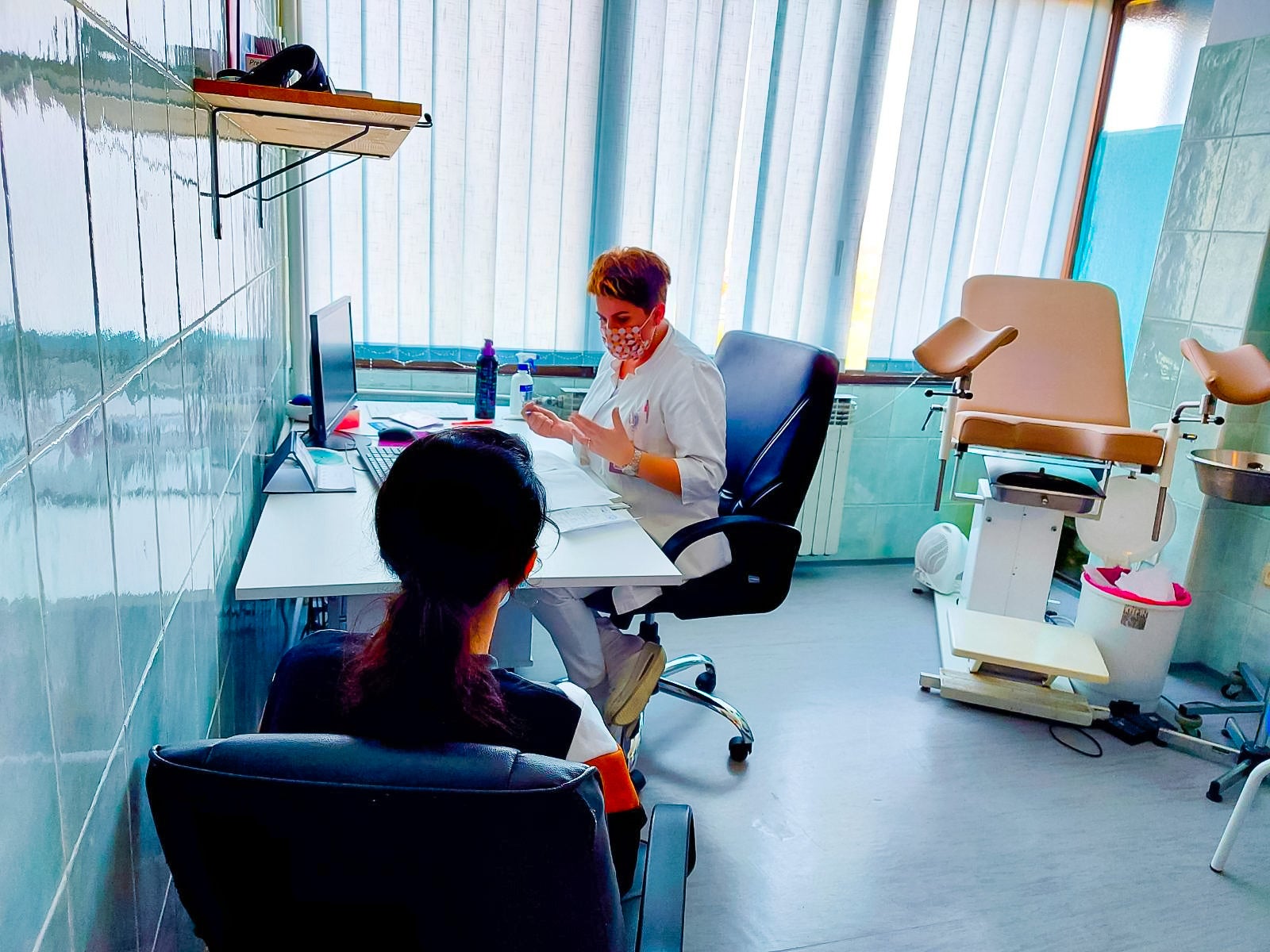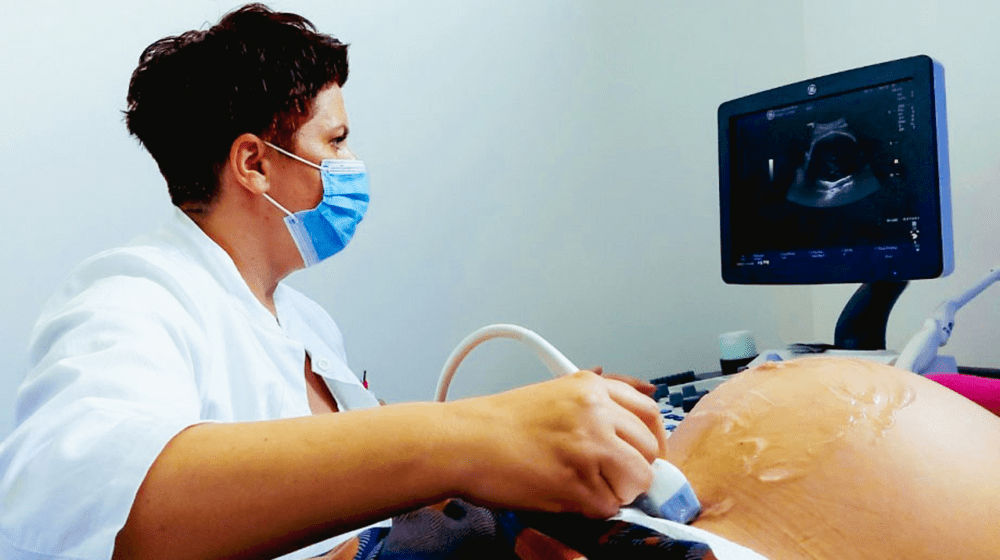Migrant and refugee women and girls who come for examinations in Temporary Reception Centers in Bosnia and Herzegovina, managed with the support of the European Union, usually originate from countries where it is not deemed as culturally appropriate for females to talk about sexual and reproductive health, many of them not being familiar with regular tests, screenings and doctor visitations.
“Before coming to my office, women had never before undergone a pap smear or knew what it was, what the process looked like or what it was for. They do not know some basics on maintaining intimate hygiene or what a menstrual calendar is and how it is calculated. For instance, during one session, it was just a breast examination, I noticed that the patient was unfamiliar with the process, but after I introduced her to the purpose of the examination and the process itself - they accepted it very well, moreover, they were glad to know now that there are many ways to prevent and detect a problem through simple, regular examinations”, stated Dr. Halida Lubic.

Dr. Lubic is a specialist in gynecology and obstetrics who has been working at the Primary Health Center in Bihac since 2011. Her career in the Women’s Health Care Service began in 2018, while her official cooperation with UNFPA Bosnia and Herzegovina began in August of 2020., during the first held sessions and patient consultations. Dr. Lubic states that many girls and women coming from countries such as Iraq and Syria are often not sufficiently informed or educated on such topics prior to arriving at her office or talking to the UNFPA team.
Since the beginning of the humanitarian response in Bosnia and Herzegovina, with active support and cooperation with the European Union, UNFPA teams have continuously worked to ensure access to sexual and reproductive health care services for all migrants, refugees, and asylum seekers currently residing in Bosnia and Herzegovina. One of the most crucial support pillars was the engagement of the host communities and personnel working in hospitals and medical centers in the delivery of services.
Most of the migrant and refugee women and girls who visited Dr. Lubic, come from the countries such as Iraq and Syria where sexual and reproductive health is taboo and many girls and women are often not sufficiently informed or educated on sexual and reproductive health prior to visiting Dr. Lubic or talking to the UNFPA team.
She says that her ‘treatment’ begins as soon as the patient walks through the door. The visits to her office begin with relaxing small talk, – whatever the patient would feel comfortable with. Once she notices that the patient is relaxed, she begins preparing the patient for the examination.
“I try to establish a bond with all of my patients, because I value their trust. Every single patient has left some kind of an impression on me, but especially migrant and refugee women and girls because they still share their life stories with me and we touch on extremely sensitive topics. Unfortunately, these are most often girls and women who have survived traumatic experiences in terms of sexual abuse. When you gain the trust of a person who has survived something so horrendous, it cannot be forgotten and I am tremendously honored to have earned the trust and respect of such strong individuals” says Dr. Lubic.

Following each session, Dr. Lubic says that what she remembers most is the smile on the patients’ faces. She continues her interview by saying that all beneficiaries are very cordial and always want to express their gratitude. They are very happy and grateful to have the opportunity to have access to such delicate information both by a physician and the UNFPA team. They have someone to ask questions that interest them, without embarrassment or stigma. Each session ends with an embrace and words of gratitude, “I am of course glad to have the opportunity to help someone.”
Regarding the topic of Human papillomavirus (HPV) which is the most common viral infection of the reproductive tract, Dr. Lubic recalls a recent visit to a Temporary Reception Center where she and the UNFPA team jointly spoke to a patient who was diagnosed with HPV. It was a pivotal and potentially life-saving moment for the young girl, having access to vital information and understanding the importance of the next step.
Crucial moments like this one portray only a small part of the Humanitarian Response in Bosnia and Herzegovina. It is with continuous support and joined efforts with the European Union that the UNFPA team can actively improve and affect the lives of migrants and refugees currently residing in Temporary Reception Centers in Bosnia and Herzegovina.

The project “EU Support to Migration and Border Management in Bosnia and Herzegovina” is funded by the European Union through an Instrument for Pre-Accession Assistance (IPA) special measure and is implemented by the IOM in partnership with UNFPA, UNHCR, UNICEF, and Danish Refugee Council (DRC).
- Ines Gredelj


